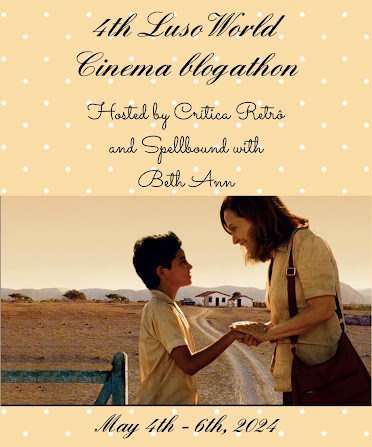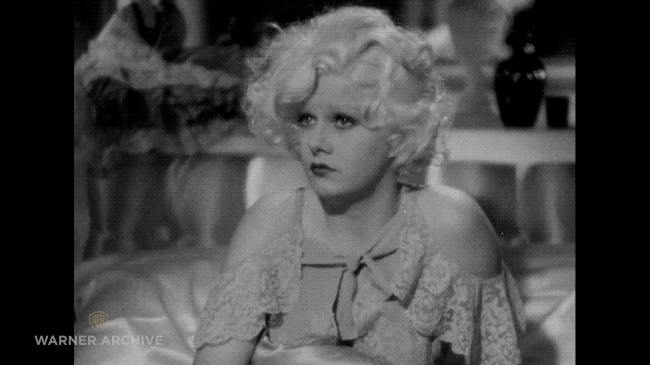At the start of the documentary, Triumph of the Will (1935), we watch German Chancellor Adolph Hitler from the back of his open-air car. He is being driven through the streets of Nuremberg while spectators cheer like he’s a rock star.
He stands in the front passenger side of the car, surveying the throngs while the camera surveys him. We (the audience) seem so close to Hitler, we can almost touch him. We see the small smile beneath his mustache, the wind gently tousling his neatly-trimmed hair, and the smooth, crisp lines of his collar.
The footage is uncomfortably intimate. Judging by some of the Nuremberg women gazing longingly at him, we wonder if director Leni Riefenstahl wanted audiences fall in lust with Adolf Hitler.
On the surface, Triumph of the Will is a documentary about the 1934 Reich Party Congress in Nuremberg*, highlighting speeches and rallies held during the six-day conference. Speakers talk about “the general requirement to work” and “the purity of race” and, at the end of the film, “Hitler is Germany as Germany is Hitler.”
It’s a fascinating, but chilling, historical document, edited with precision. Marching soldiers are timed with endless military music. Rally spectators are herded into straight-edged patterns. This new, Nazi Germany is Organized.
The film tries to offer moments of levity, however contrived. There is a visit to a youth camp, where the young men display unflagging cheerfulness while hauling firewood or preparing lunch. All for the Führer, their actions say.
But you have to give Riefenstahl this: She was creating a piece of complex cinema. Her film is demagoguery, disguised as documentary, dressed in artistry.

The camera looks up at Hitler, making him appear more powerful. Image: New York Times
The impact of Triumph of the Will was tremendous when released in 1935. Germany, still suffering from post-WWI reparations, was experiencing high unemployment, skyrocketing inflation and a pervasive sense of defeat.
Riefenstahl’s film tells Germans they have a sacred mission. In promising employment and new infrastructure projects, Hitler implies he has been Chosen to lead the nation. “This [rally] has been a great spiritual meeting of old fighters and comrades in arms,” he says.
These pseudo-religious overtones are not lost on Riefenstahl. Her footage of the nighttime rallies is impressive, with Nazi guardsmen holding torches and swastika banners bathed in spotlights. Riefenstahl’s cameras treat this pageantry with reverence.
She also knows the value of a good performance. When Hitler addresses the youth camp, Riefenstahl’s camera moves in a slow semi-circle around him as though underscoring his words. When he pauses for effect, the boys cheer and the camera examines their faces: They are riveted, almost worshipful.

Congress attendees simultaneously watch and participate in the theatre. Image: StudyBlue
In her memoirs, Riefenstahl claims she didn’t want to make this film. “[T]he Führer had insisted that I alone was to make the film,” she writes. “Even so, I was determined to resist taking on this assignment.”†
Whether or not that is true, Riefenstahl pursued this project with the same intensity that made her a popular dancer and film actress before she became a director.
Riefenstahl hired 18 cameramen for this film, each with their own assistant. Her focus was to have movement, not static shots, so in addition to building tracks and rails for the cameras, she allegedly taught the cameramen how to rollerskate.‡ When you see the effect of these 18 cameras, you realize a gifted filmmaker was at work.§
We recommend Triumph of the Will for two reasons: (1) it’s useful to study the past to see if patterns are being repeated today; and (2) Riefenstahl’s technical and artistic abilities are noteworthy.
-⋅-
*After WWII, Allied powers chose Nuremberg to host the War Crimes Trials that prosecuted Nazi leaders.
†Riefenstahl, Leni (1992). Leni Riefenstahl: A Memoir. New York, NY: Picador USA, p. 157.
‡ibid, p. 159.
§Triumph of the Will is not considered Riefenstahl’s masterpiece; that would be 1938’s Olympia, her documentary of the 1936 Berlin Olympic Games.
Triumph of the Will: starring Adolf Hitler, Hermann Göring, Walter Ruttmann. Directed by Leni Riefenstahl. Written by Leni Riefenstahl, Walter Ruttmann & Eberhard Taubert. Leni Riefenstahl-Produktion, 1935, B&W, 110 mins.
This post is our contribution to the Early Women Filmmakers Blogathon hosted by Movies Silently and sponsored by Flicker Alley’s Early Women Filmmakers: An International Anthology.












I have not stirred up enough courage to watch this film yet, but I am going to at some point for historical purposes. It is definitely interesting how you describe that Riefenstahl did not want to make this film yet put a great deal of effort and technique into the film’s construction.
LikeLiked by 1 person
Yes, it is interesting, isn’t it, how she said she wanted no part of this film. There are many such interesting recollections in her memoirs.
LikeLiked by 1 person
It’s astonishing that this film still retains a certain amount of potency despite being over 80 years old. It makes me wonder just how persuasive it must have been for the German public back in 1935.
Have you seen the documentary ‘The Wonderful, Horrible Life of Leni Riefenstahl’? As an artist, she’s a force of nature and it’s fascinating to hear Leni tell her side of the story.
LikeLiked by 1 person
Thanks for the heads up on the film about Leni R. I haven’t yet seen it, but I have read her memoirs, and I liked that she had a lot of info on movie making back in the day.
LikeLiked by 1 person
Thanks so much for joining in and taking the bull by the horns. 😉 Anyone who doubts the power of propaganda should definitely study this film and its effects. The fact that visual elements are still showing up in Star Wars villains scenes says a lot.
LikeLiked by 2 people
You’re so right, Fritzi. I should have posted stills from Triumph/Will and Star Wars beside each other to show Leni’s influential imagery.
Thanks for organizing this blogathon. I’m going to learn a lot – in fact, I already have!
LikeLike
Excellent write-up Ruth, I’m familiar with the movie and you’ve analyzed it with a sharp eye.
LikeLiked by 1 person
Thanks! Regardless of what a person may say about Leni, there’s no dying her talent.
LikeLiked by 1 person
Agreed Ruth, even if the content mirrors “fake news” in the day. We studied this film in a college course many years ago.
LikeLiked by 1 person
We like to think that in this day and age the populace is more media savvy than past generations, yet a great artist can very easily sway an audience. Reifenstahl’s film is a hallmark of that art.
LikeLiked by 1 person
Well said. This film feels modern thanks to its innovative cinematography. Leni Riefenstahl certainly knew what she was doing.
LikeLike
When I read your review, it made me think of a film I saw recently about the olympic sprinter Jesse Owens titled, “Race,” that centers around the 1936 Summer Games in Berlin. It has a number of scenes showing Leni Riefenstah’s role as Hitler’s film director for the Games that add a strong dynamic to the film.
LikeLiked by 1 person
LikeLiked by 1 person
Oh yes, I saw that one too! I liked that the “Race” filmmakers added Leni R. as part of the movie.
LikeLike
I almost stopped reading very early in the post then you hit me with EXACTLY what I was thinking: “The footage is uncomfortably intimate.”
Beautifully written, as always. Your word choice throughout (lust, worshipful, reverence…) gives me a perfect visual of the film. It also makes me sick to my stomach. This is one I won’t be watching. Could never deal with it.
LikeLiked by 1 person
Ack! Can’t believe I missed your comment.
This is a difficult film to watch in places, especially when the speakers talk about race and the need to be obedient. The visuals are stunning, but I can understand why some people would never watch it.
LikeLiked by 1 person
Hey, there! I think I worded my comment badly and was worried you’d taken offense. Sorry about that. ❤
I, personally, have a difficult time watching or reading anything about this so it's really just me. But, as I said, it's a beautifully written post and definitely shows how amazing the process of filming this was.
LikeLiked by 1 person
No worries – no offense taken at all. It is a difficult subject, and it should be.
LikeLiked by 1 person
Terrific post. An important film no matter how difficult. Nevertheless, she persisted.
LikeLiked by 1 person
I find this film utterly fascinating from a historical POV. Leni Riefenstahl was truly talented.
LikeLike
I have seen clips of this film but have not watched it from start to finish. I had no idea it was directed by a woman and I think that’s really fascinating given the circumstance of it being Nazi Germany. You’ve inspired me to finally watch this film all the way through. It is definitely an important piece of history!
LikeLiked by 1 person
I hope you are able to see this film start to finish. There are certainly some uncomfortable speeches (to say the least), but it’s also fascinating to study Riefenstahl’s techniques.
LikeLiked by 1 person
I’ll certainly have to watch this. “Triumph of the Will” was such a familiar title, but I’m ashamed to admit that I did not even realize that it was about Hitler. Judging from your post, Leni certainly overcame her initial disinterest in making the film. I suppose when you have an artistic project at hand, regardless of its topic, it is hard to resist plunging into it with abandon.
LikeLiked by 1 person
Oh, it’s about Hitler, all right – up close and personal. I hope you get the chance to see this. Her filmmaking techniques are really innovative. Subject matter… Well, that’s another thing.
LikeLike
Hi Silverscreenings. Thank you for a fair assessment of a movie that I found very painful to watch. Leni Riefenstahl really was a good filmmaker. Too bad she put her talents in the service of such a bad cause. I’d like to see a photo of a camera person on roller skates.
LikeLiked by 1 person
Yes, she had talent and determination, that’s for sure. Her memoirs are quite instructive when it comes to the behind-the-scenes work of her films.
As for the cameraman on roller skates, I looked for a photo but couldn’t find one in time.
LikeLike
During MA in International Cinema, at University of Luton, UK, in my 2nd semester, for a module called ‘Reality and Representation’, we were shown Leni Riefenstahl’s ‘Olympia’ (only Part One though), about the Berlin Olympics of 1936 (that you’ve mentioned as well)!!!! That too on the Big Screen!! With Hitler at the helm, it was pretty chillingly intimidating; showcasing how great apparently Germany under Hitler would be (though Hitler wasn’t happy at the special focus on Jesse Owens). So I can imagine how manipulating this film might be, as you’ve stated that this ‘film is demagoguery’!!!
But at the same time, as you’ve praised her camerawork; I agree, even in ‘Olympia’ her cinematic artistry was amazing.
True, it’s educational to watch these films, but not for the purpose they were intended for. Nice review!!
LikeLiked by 1 person
Thanks! I haven’t yet seen “Olympia” – I’m not in a hurry to see it. For me, one such film per year is enough.
Your studies in International Cinema sound fascinating. You must have seen some incredible films – and the discussions must have been amazing, too!
LikeLiked by 1 person
Amazing films, not as many as I wished we had. Amazing discussions, O YES!!!!!
And a load of assignments!!!
But yes, I thoroughly enjoyed the course. Just wish we got to choose the modules. I would have loved to study European Cinema, but we didn’t have that, during the year I was there. But I loved the modules of ‘Film Analysis’ and ‘Post Colonial & Third Cinema’; and my dissertations (one mini-dissertation in 2d semester; and my final dissertation in my final semester).
Of course this was looooooong ago (2002-2003)!!
LikeLiked by 1 person
This is a great film, I highly recommend all those who can watch to do so. It’s superior in every way to “Battleship Potemkin.” And as far as mentions of “race” there is only one passing reference by a momentarily appearing Julius Streicher. Seriously, watch this movie and blow away a lot of that extra baggage about the Third Reich that the establishment feeds us. Oh and then watch Leni Riefenstahl’s equally impressive “Olympia” that showcases Jesse Owens more so than any other athlete and the film was approved by both Hitler and Goebbels.
LikeLike
“Olympia” is one I’ve yet to see – have only seen first 10 minutes or so – but Riefenstahl’s talent is evident right from the opening frame. Her memoirs have a lot of interesting background on both “Olympia” and “Triumph of the Will”.
LikeLike